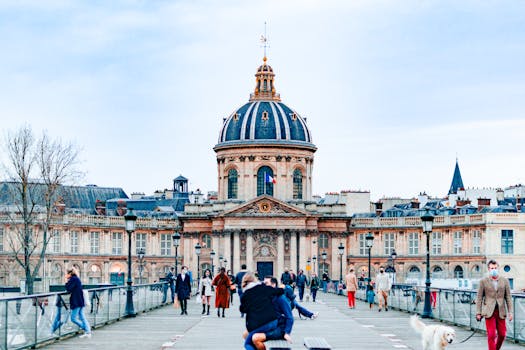
Traveling Through Time: How Europe’s Historical Heritage Shapes Modern Lifestyles in 2025
Traveling Through Time: How Europe’s Historical Heritage Shapes Modern Lifestyles in 2025. Europe, a continent steeped in history and tradition, has a profound impact on modern lifestyles. From the intricate architecture of Barcelona to the delectable cuisine of Italy, every aspect of European culture has been influenced by its rich heritage. In this article, we’ll explore the ways in which Europe’s historical past continues to shape modern lifestyles in 2025.
The Influence of Historical Architecture
One of the most striking examples of Europe’s historical heritage is its architecture. Cities like Paris, Rome, and Athens are filled with iconic landmarks that have withstood the test of time. These structures, such as the Eiffel Tower, the Colosseum, and the Acropolis, have not only become symbols of their respective cities but have also inspired modern architectural designs. The blend of ancient and modern styles has resulted in unique and breathtaking cityscapes that attract millions of visitors each year.
The Evolution of European Cuisine
European cuisine is another area where historical heritage has had a lasting impact. Dishes like pasta carbonara, paella, and fish and chips have become staples of modern European cuisine, with each region boasting its own distinct flavors and ingredients. The influence of historical trade routes, cultural exchange, and royal courts can be seen in the diverse range of cuisines across the continent. From fine dining restaurants to traditional taverns, European cuisine continues to evolve, incorporating new ingredients and techniques while maintaining its traditional roots.
Cultural Festivals and Traditions
Europe’s historical heritage is also celebrated through various cultural festivals and traditions. The Tomatina festival in Spain, the Venice Carnival in Italy, and the Oktoberfest in Germany are just a few examples of the many events that take place throughout the year. These festivals, often dating back centuries, have become an integral part of modern European culture, showcasing the continent’s rich history and diversity. Visitors from around the world flock to participate in these events, experiencing the unique customs, music, and food that each festival has to offer.
Modern Lifestyles in 2025
So, how does Europe’s historical heritage shape modern lifestyles in 2025? The answer lies in the way Europeans live, work, and interact with one another. The continent’s emphasis on preserving its cultural heritage has resulted in a strong sense of community and shared identity. From the charming cafes of Vienna to the vibrant streets of Berlin, modern European cities are designed to balance tradition with innovation, creating unique and exciting lifestyles that are unparalleled anywhere else in the world.



